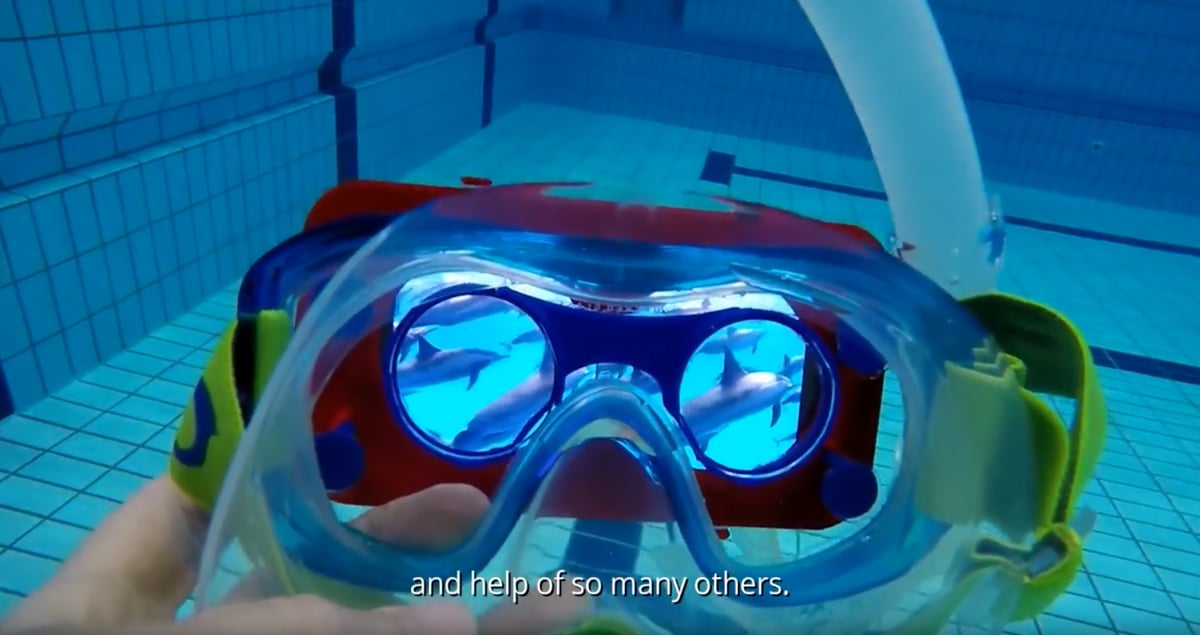The Dolphin Swim Club is making the therapeutic experience of swimming with dolphins more accessible to everyone.
A new non-profit organization wants to make swimming with dolphins cruelty-free and an event that can be available to all people. The Dutch company The Dolphin Swim Club may have uncovered a way to allow disabled people to enjoy a swim with dolphins using recent advances made in virtual reality.
The group originally launched a project using virtual reality headsets whilst viewing a film on dolphins. A Heeren Loo-run residential center for the disabled has been testing the virtual reality dolphin therapy with success since 2016. The organization’s policy advisor, Johan Elbers said:
“Some 82 percent of our clients feel actually relaxed by seeing the films. It takes them away from the world they are in; they enter a new world in another mindset; think differently, feel differently, see differently and relax completely.”

Start Diving with Waterproof VR Glasses
But in October this year, The Dolphin Swim Club has stepped up its virtual reality efforts and rolled out waterproof virtual reality glasses which enable people to view dolphins around them whilst in a pool. It’s an excellent and cruelty-free alternative to real-life dolphin swimming, and safe for those who may not be able to enter the open sea.
Benno Brada, the company’s business consultant, explained: “The dream was to find an alternative to dolphin-assisted therapies using dolphins in captivity.”
Founded by artist Marijke Sjollema, The Dolphin Swim Club was launched following her first encounter with dolphins in 1993 whilst snorkeling in Mexico.
“I saw this gray shadow under the water and my first thought was, ‘This is the end.’ I thought it was a shark,” she told in an interview with AFP. When she realized it was a dolphin, she immediately calmed down. She added: “We know that there is something magical about dolphins. We think of joy, and playfulness and happiness and innocence when we meet dolphins. And this is even a healing quality.”
Ever since then, Sjollema and Brada have been busy uncovering ways to bring the experience to other people.
The virtual reality glasses have been developed in collaboration with a €50,000 grant from the Dutch government. They consist of a waterproof Samsung smartphone which is attached to a 3D printed mount made of recycled plastics.
Whilst the dry version glasses and film are now being used across 150 universities, hospitals and communities to help patients de-stress and offer a more relaxing approach to therapy, Sjollema hopes that the wet virtual reality experience will be equally beneficial.
(Source: AFP)
License: The text of "Swimming With Dolphins Goes Cruelty-free Thanks to Waterproof VR Googles" by All3DP is licensed under a Creative Commons Attribution 4.0 International License.